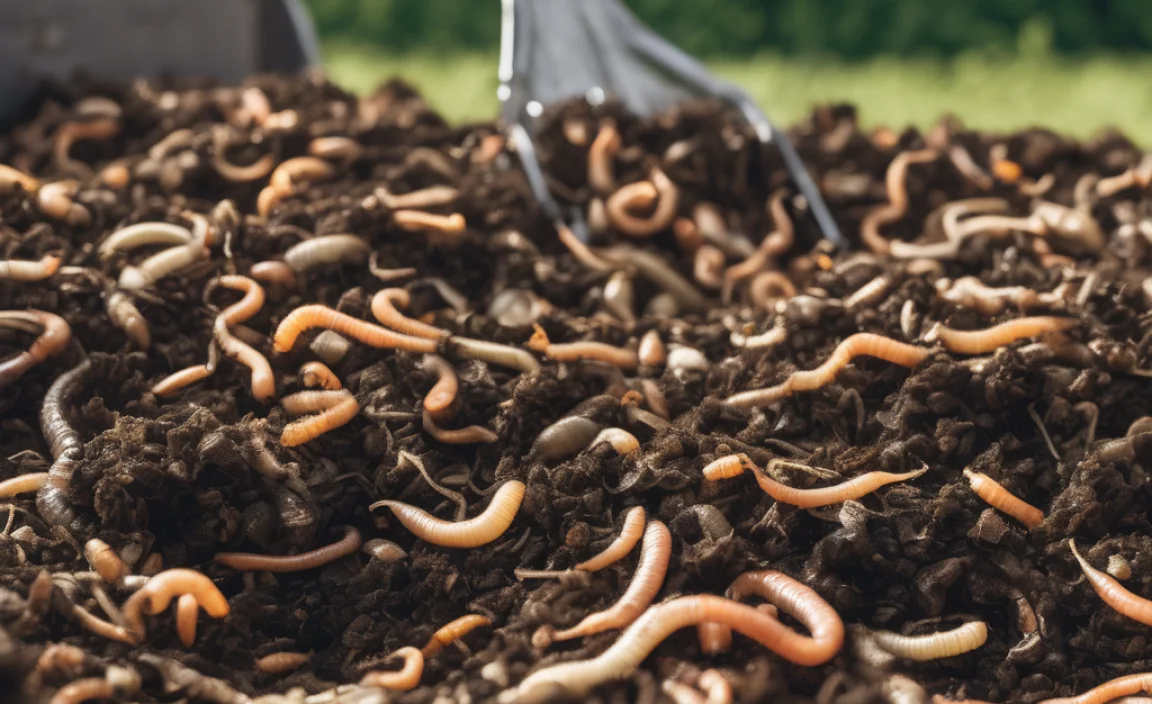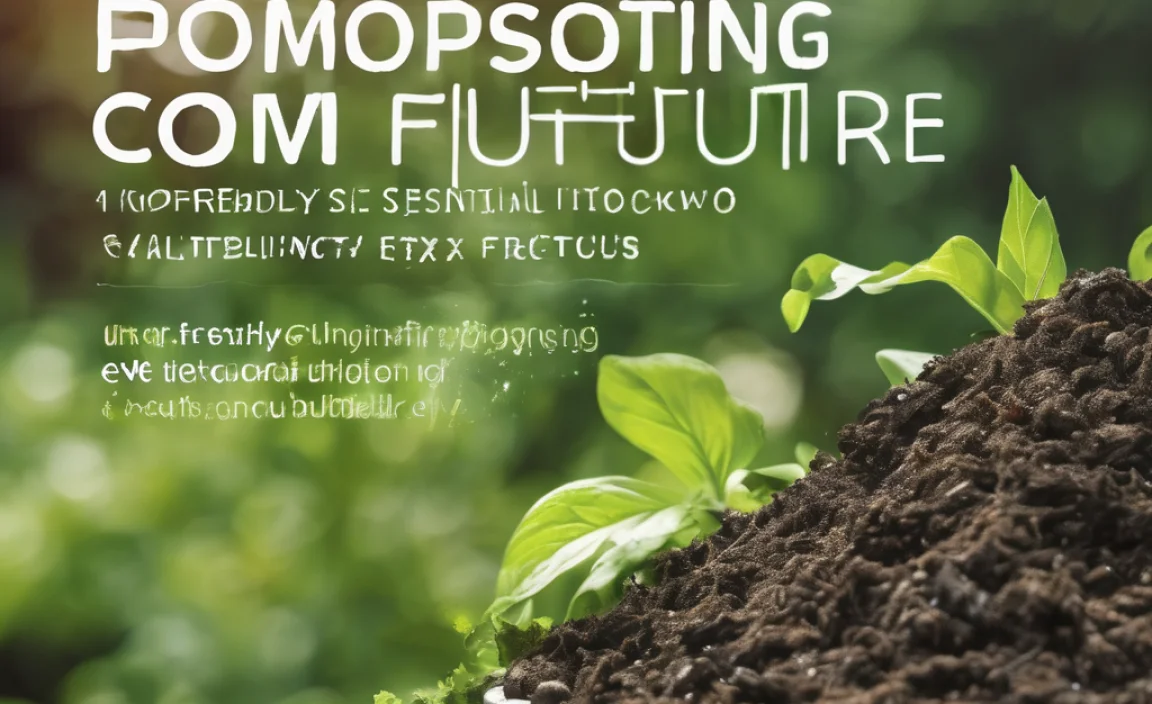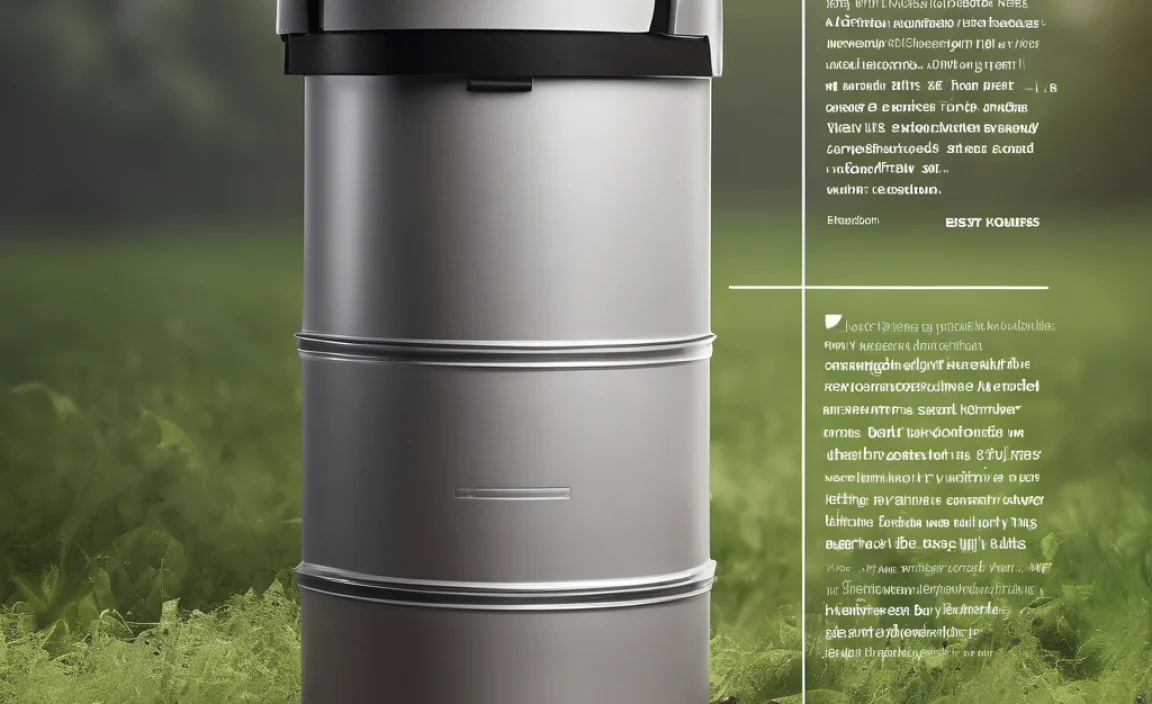Do you live in a small apartment? Have you ever thought about composting? Many people think composting is only for big gardens. But, you can compost in your apartment too! Don’t worry about rats either. There are safe ways to keep them away. Let’s learn more about composting for small apartments.
Key Takeaways
- Composting is possible in small apartments with the right setup.
- Keep your compost clean to avoid attracting rats.
- Use indoor bins like worm bins for easy composting.
- Composting helps reduce waste and is eco-friendly.
- Rats can be avoided with proper composting techniques.
Composting For Small Apartments
Composting in small apartments is easy and fun. You don’t need a garden or backyard. All you need is a little space and the right tools. Indoor composting bins are perfect for small spaces. They keep things tidy and mess-free. You can place them under the sink or in a corner. These bins can handle kitchen scraps like vegetable peels and coffee grounds. Start with a small bin and see how it goes.
- Find a space for your bin.
- Choose the right composting bin type.
- Use kitchen scraps and plant waste.
- Keep the bin dry and air-circulated.
- Check and stir the compost regularly.
- Use the compost for indoor plants.
Once you start composting, you’ll notice a difference. Your trash will have less waste. Plus, you’ll make your own plant food. Remember, the key is to keep your bin clean and dry. This helps prevent any unwanted pests like rats. Just follow these simple steps and your apartment will become a greener space.
Fun Fact or Stats : Composting can reduce your kitchen waste by up to 50%!
Choosing The Right Bin
Which composting bin should you choose? Well, there are many options! Some people like worm bins. Worm bins are great for small spaces. They use worms to break down food scraps quickly. Another option is a bokashi bin. This type uses a special bran to compost faster. Or, you might like an electric composter. It’s quick and easy to use. Think about your space and needs.
What Can You Compost?
Do you know what items are best for composting? You can compost many things from your kitchen. Vegetable peels, fruit scraps, and coffee grounds are great. Tea bags and eggshells work too. But avoid meat and dairy. They can smell and attract pests. Composting is a great way to recycle and help the environment.
Placement And Space Saving Tips
Where should you put your compost bin? Find a spot that’s easy to reach. Under the kitchen sink is a great place. You can also use a balcony or a pantry corner. Keep your bin in a cool, dry place. This helps it work better. And it keeps your apartment smelling fresh. Look for space-saving bins if room is tight.
Dealing With Rats In Apartments
Worried about rats in your apartment? It’s a common concern but easy to handle. Rats are attracted to food scraps, but keeping your bin tidy helps. Securely close your compost bin after each use. Make sure it has no holes or gaps. Also, use indoor bins designed to keep pests out. Regularly check your bin to ensure it’s functioning well. You can enjoy composting without fear!
- Use a rat-proof bin.
- Keep the bin tightly closed.
- Regularly empty and clean the bin.
- Avoid composting meat and dairy.
- Inspect for damage or openings.
- Place the bin in a safe location.
Keeping rats away from your compost is simple with these tips. Always maintain your bin to prevent any issues. With a little attention, composting can be a safe and rewarding activity. Reducing waste and helping the planet can go hand in hand, even in small spaces.
Fun Fact or Stats : Rats have poor eyesight but a keen sense of smell!
Why Rats Are Attracted
Have you ever wondered why rats are attracted to compost? It’s mainly because of food scraps. They have a strong sense of smell and seek food. Compost bins with gaps or smells can draw them in. But don’t worry! Using a well-sealed bin and managing scraps can keep them away.
Safe Composting Practices
How can you compost safely without attracting pests? First, always use a bin with a tight lid. Avoid composting meat, as it attracts pests. Keep your compost dry and aerated. Add brown materials like paper towels to reduce smells. Regularly check your bin for holes.
Rats and Urban Myths
Do rats always invade compost bins? It’s a myth that rats always swarm compost. With the right setup and care, you won’t have issues. Many people compost in cities without problems. Follow best practices and enjoy composting stress-free.
Benefits Of Indoor Composting
Why choose indoor composting? It’s an eco-friendly way to handle waste. Instead of throwing scraps away, you can recycle them. Indoor composting turns waste into nutrient-rich soil. This is great for house plants! Plus, it reduces landfill waste. Composting is a fun and educational activity too.
- Reduces kitchen waste.
- Creates free plant food.
- Helps the environment.
- Teaches eco-friendly habits.
- Saves space in landfills.
- Improves indoor air quality.
Indoor composting is not just good for you, but also the planet. You’ll learn about recycling and waste management. It’s a great way to introduce eco-friendly practices in your home. Plus, you’ll have a steady supply of plant food for your indoor garden.
Fun Fact or Stats : Compost can improve soil quality by 50%!
Composting For Kids
How can kids learn from composting? Start by involving them in the process. Let them add scraps to the bin. Explain how scraps turn into soil. It’s a fun science lesson. Kids love seeing how things break down over time. Plus, it helps them understand recycling and nature.
Impact On The Environment
Have you thought about composting’s environmental impact? Composting reduces the amount of waste in landfills. This means fewer greenhouse gases. It also enriches soil without chemicals. Healthier soil means healthier plants. Composting helps keep the earth green and clean.
Compost For Indoor Plants
What’s the best use for indoor compost? Feeding house plants! Compost is full of nutrients. It helps plants grow strong and healthy. Instead of buying plant food, use your homemade compost. Your plants will thank you!
Conclusion
Composting in small apartments is easy and rewarding. Remember to choose the right bin and keep it clean. This way, you can avoid any problems with rats. Composting for small apartments and managing rats is possible. It’s a great way to help the planet and reduce waste. Start small and watch your waste turn into wonderful soil!
FAQs
Question: Can I compost in a small apartment?
Answer: Yes, you can! Composting in small apartments is easy with the right bin. Indoor compost bins fit well in small spaces. They help turn food scraps into useful compost. Just follow simple steps to keep it clean and tidy.
Question: How can I avoid attracting rats?
Answer: To avoid rats, use a tightly sealed compost bin. Ensure there are no gaps or holes. Avoid composting meat and dairy, as they attract pests. Regularly check and clean your bin to keep it fresh. These steps help keep your compost free from rats.
Question: What can I compost in an apartment?
Answer: You can compost fruit and vegetable scraps, coffee grounds, and eggshells. Avoid meat, dairy, and oily foods. These are best for keeping your compost healthy. Also, add some brown materials like paper towels to balance moisture. This ensures a good compost mix.
Question: Will composting smell in my apartment?
Answer: No, if managed properly, composting won’t smell. Keep your bin dry and well-aerated. Use a lid and maintain a balance of green and brown materials. Regularly mix your compost to keep it healthy and odor-free. A proper setup ensures composting remains a pleasant activity.
Question: How do I start composting?
Answer: Start by choosing a suitable indoor compost bin. Find a good spot, like under the sink. Add kitchen scraps like vegetable peels and eggshells. Keep your bin closed and mix contents regularly. Soon, you’ll have rich compost for your plants!
Question: Is it safe to compost in a small apartment?
Answer: Yes, it is safe! With the proper setup, composting is clean and pest-free. Choose a secure bin and manage it well. Avoid foods that attract pests. Composting for small apartments and rats concerns are manageable with simple precautions.



